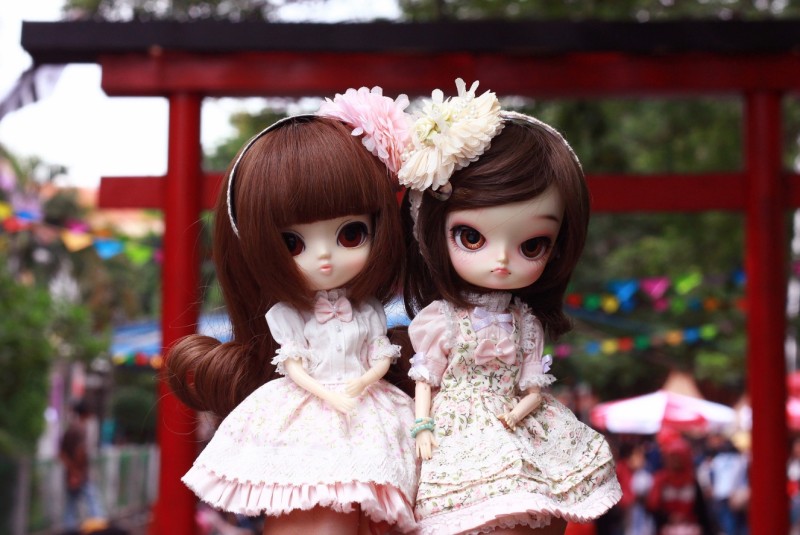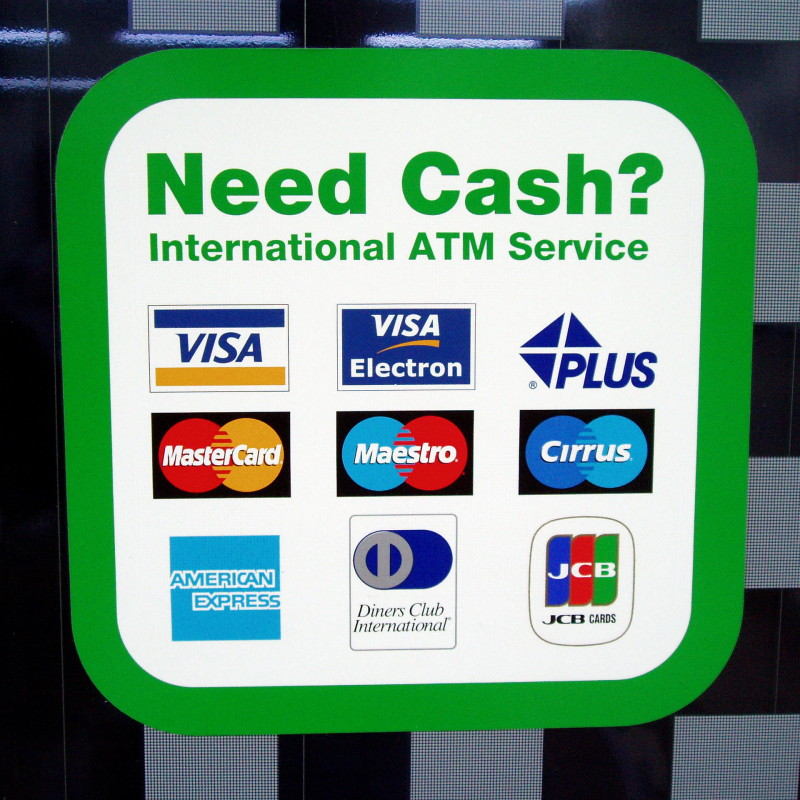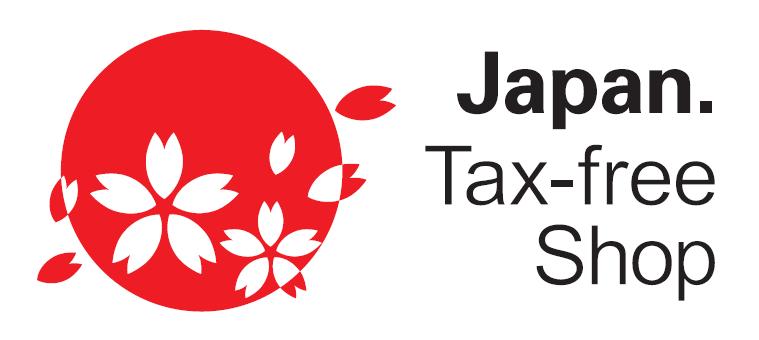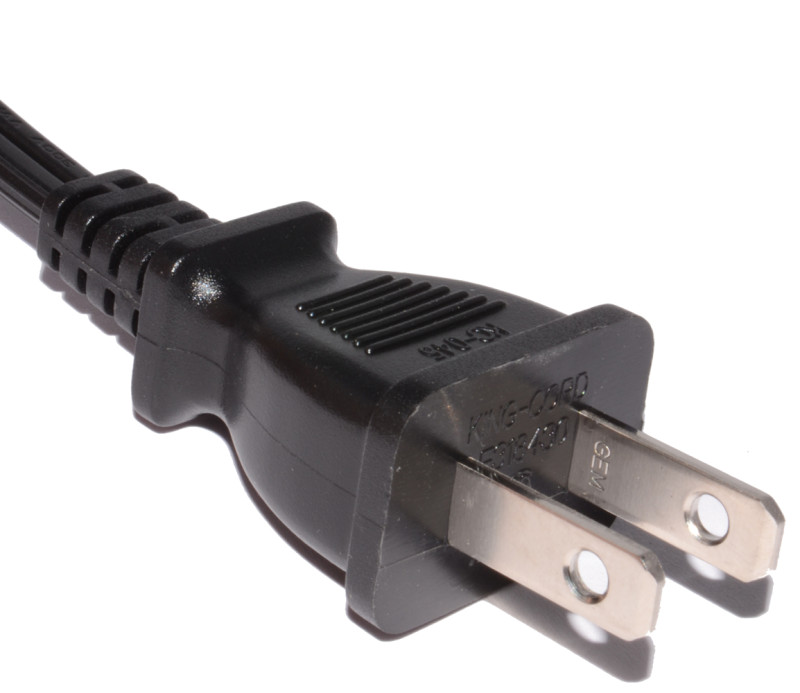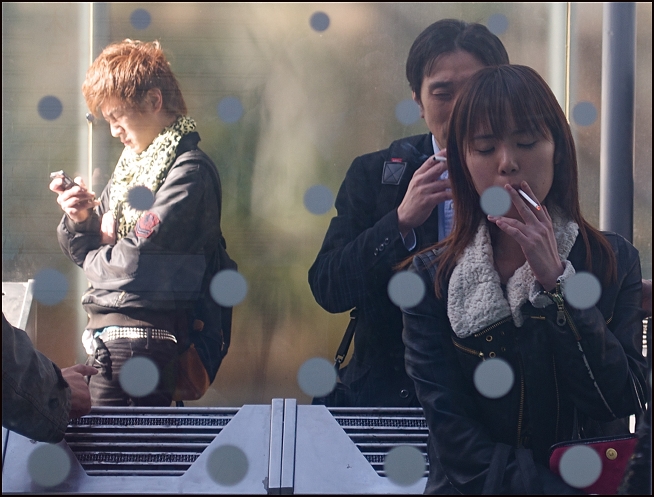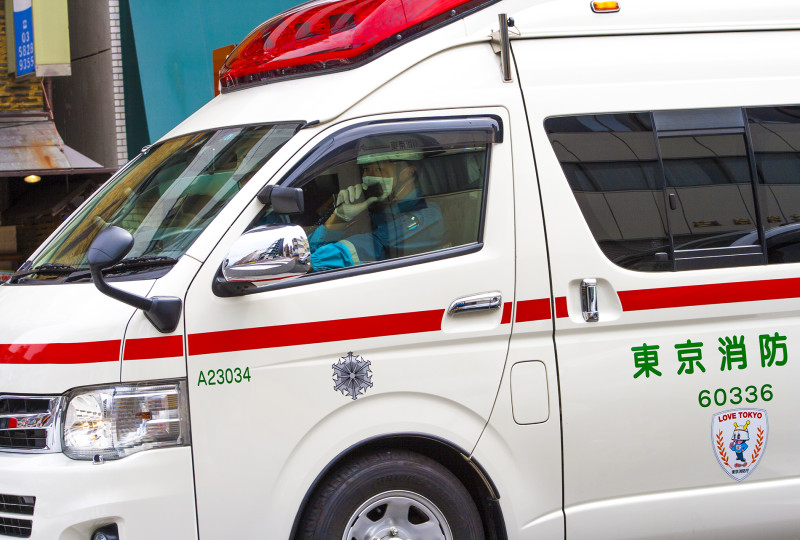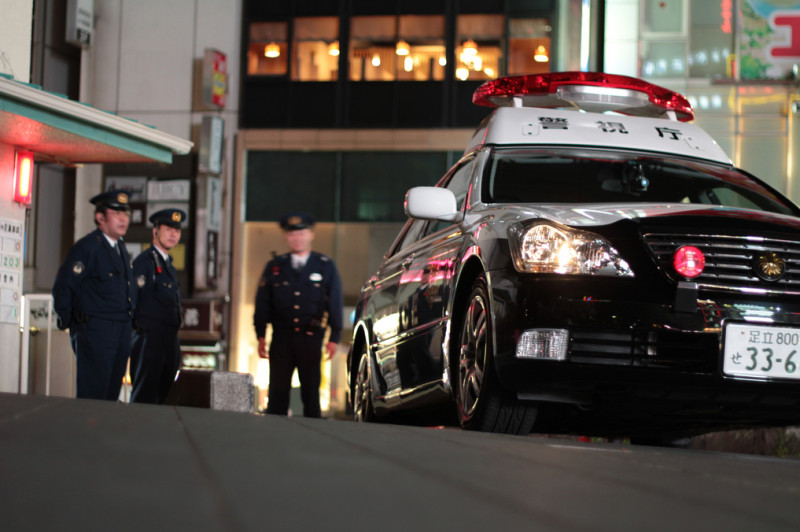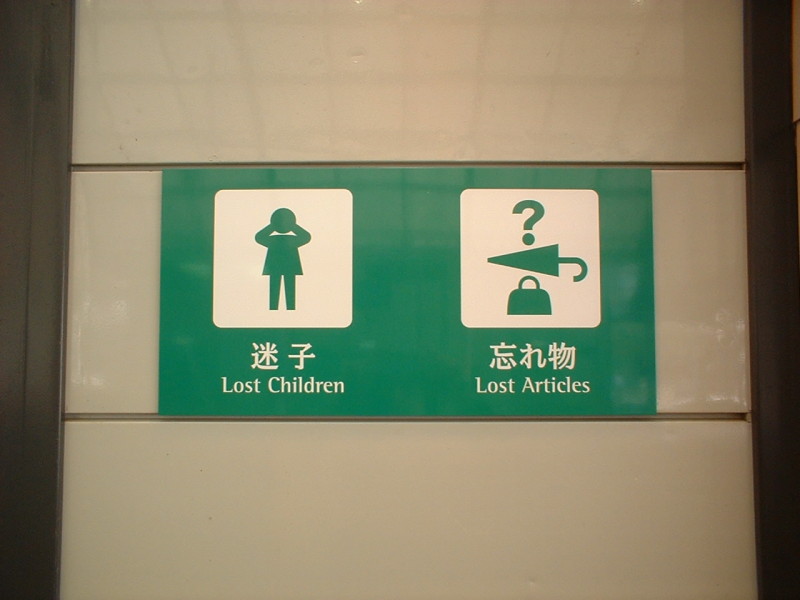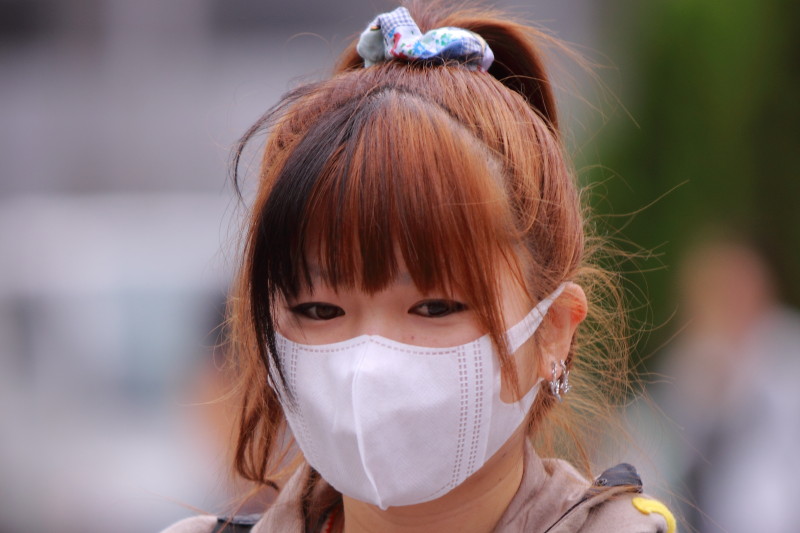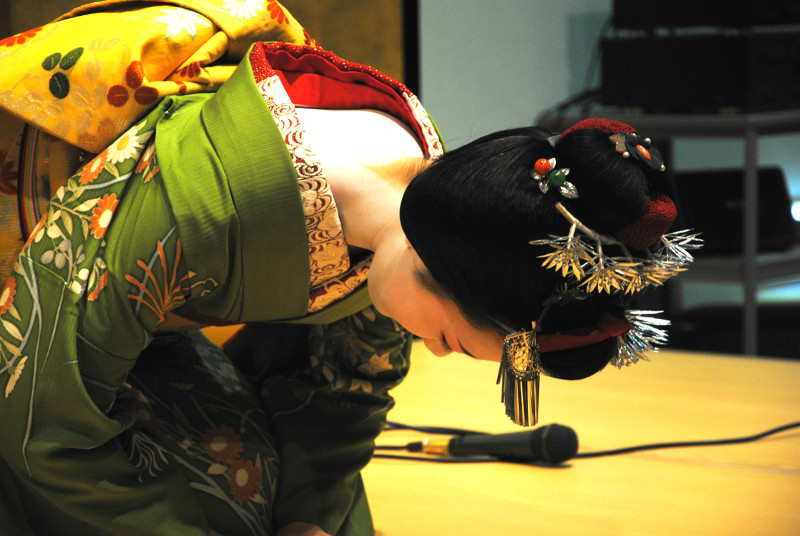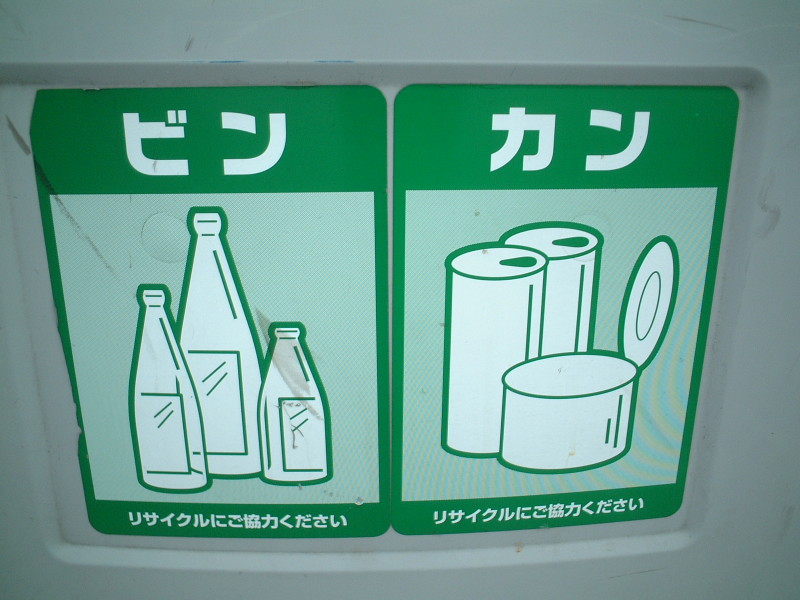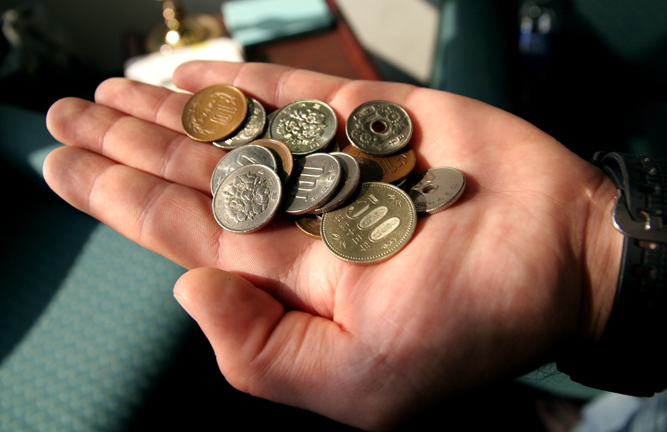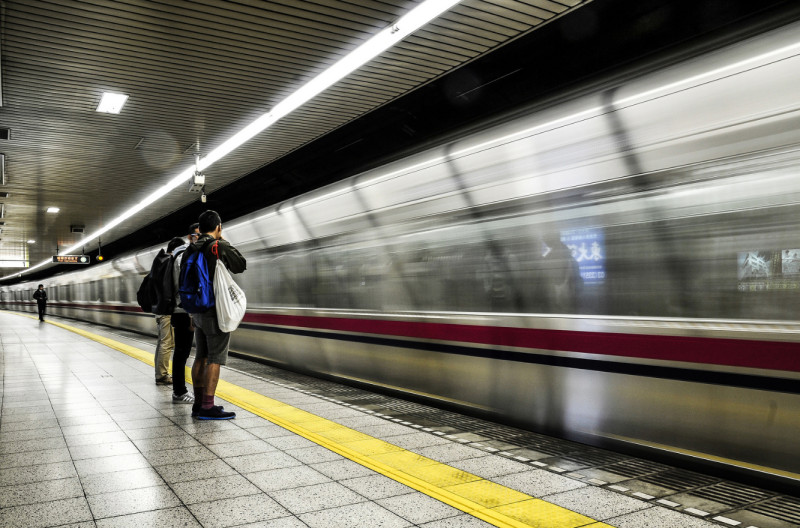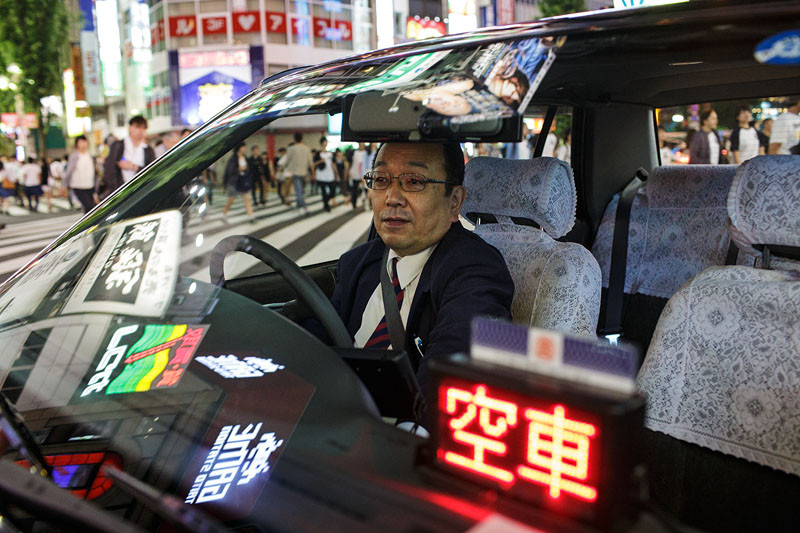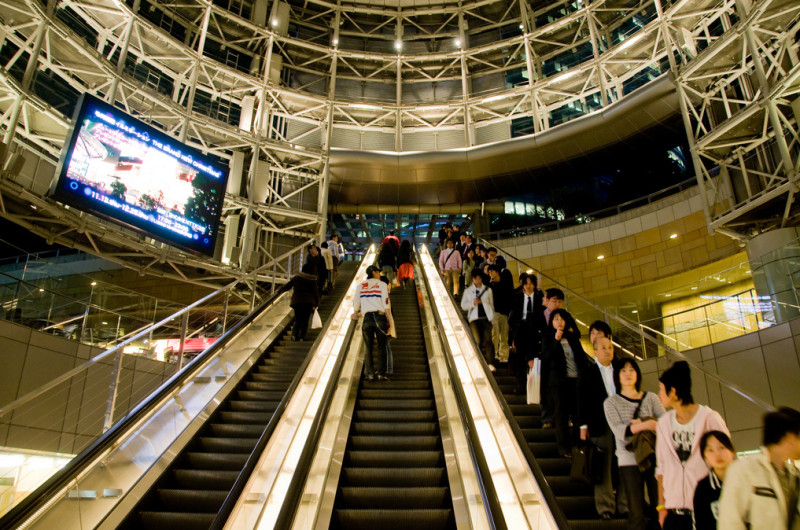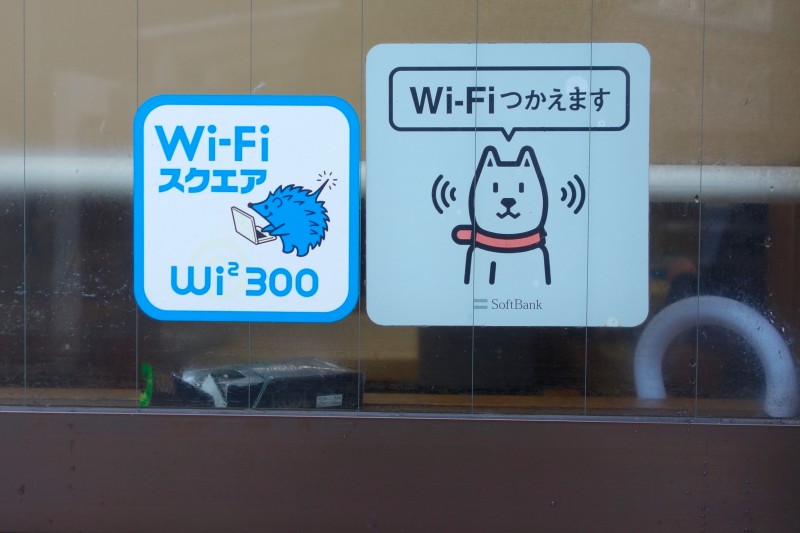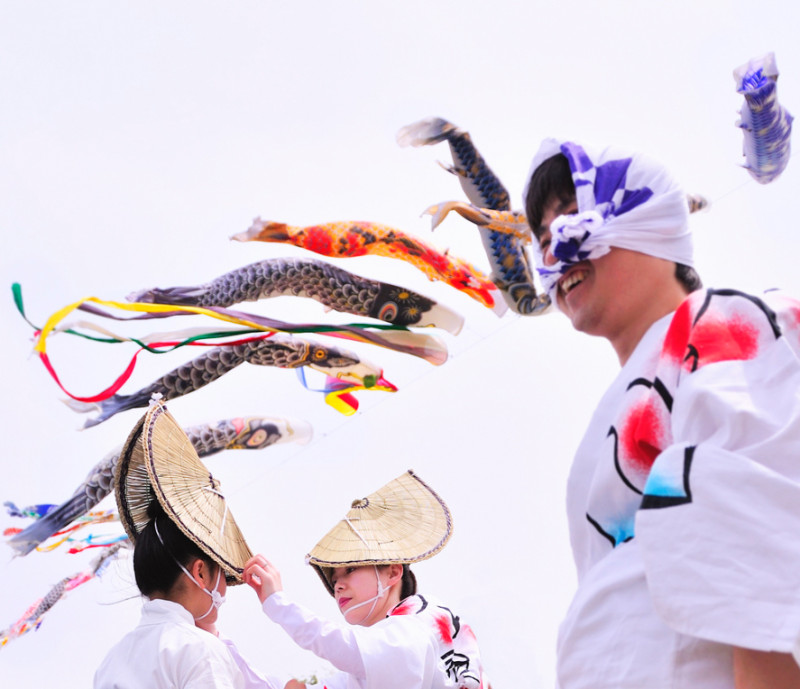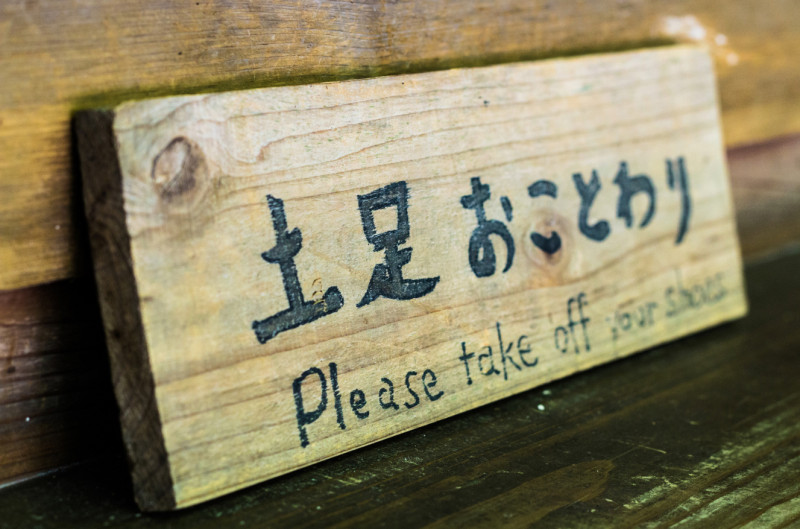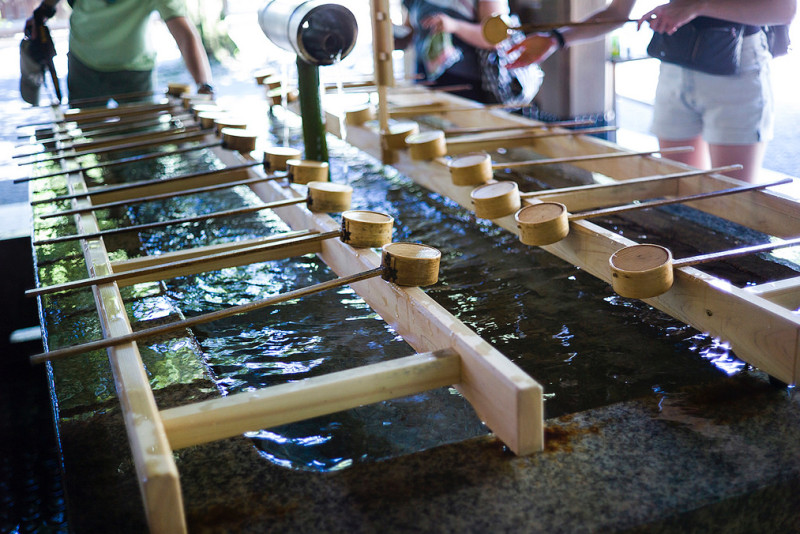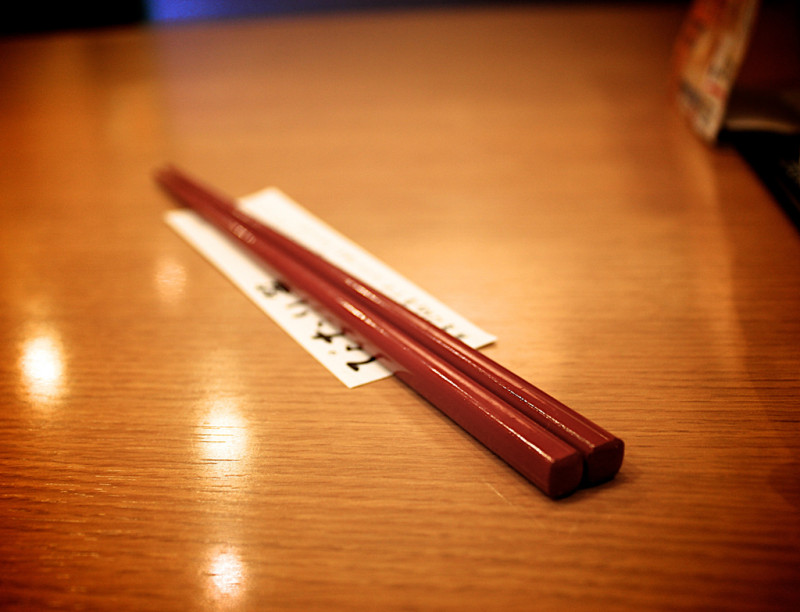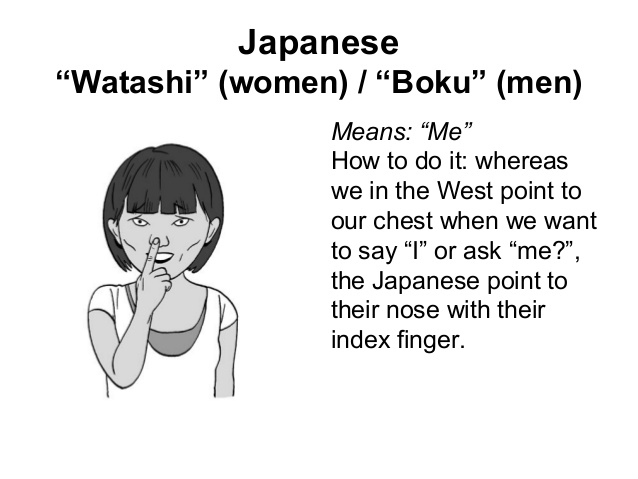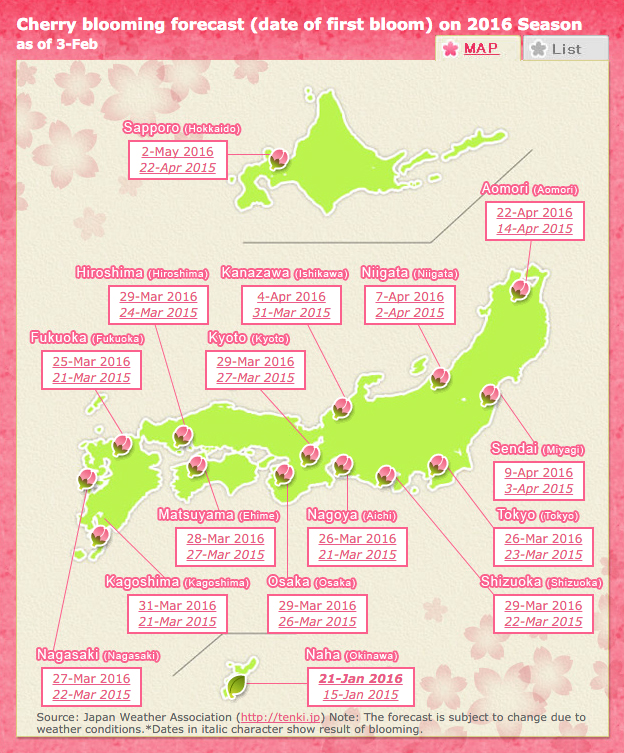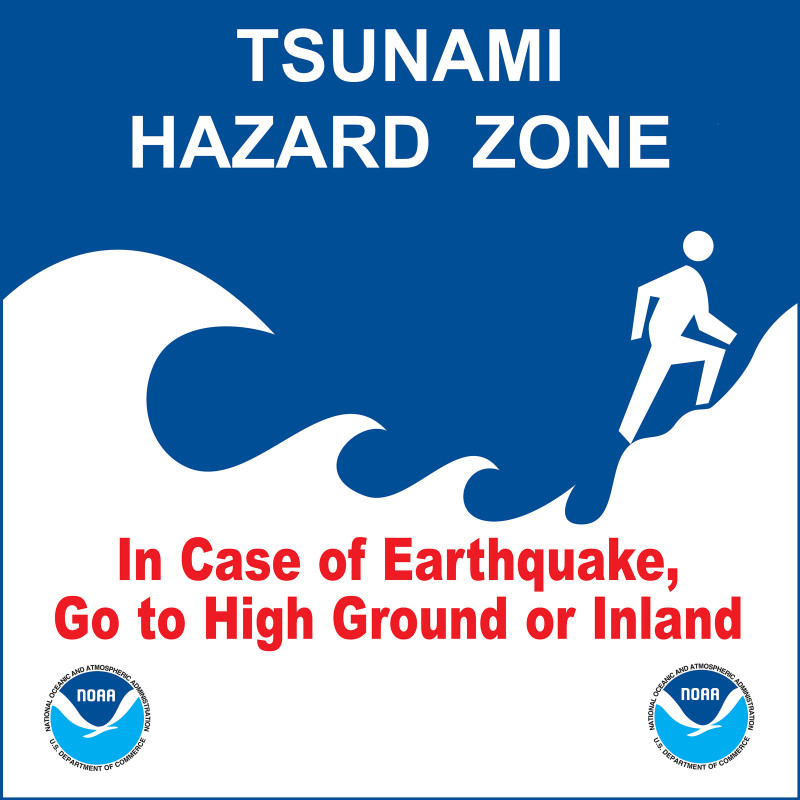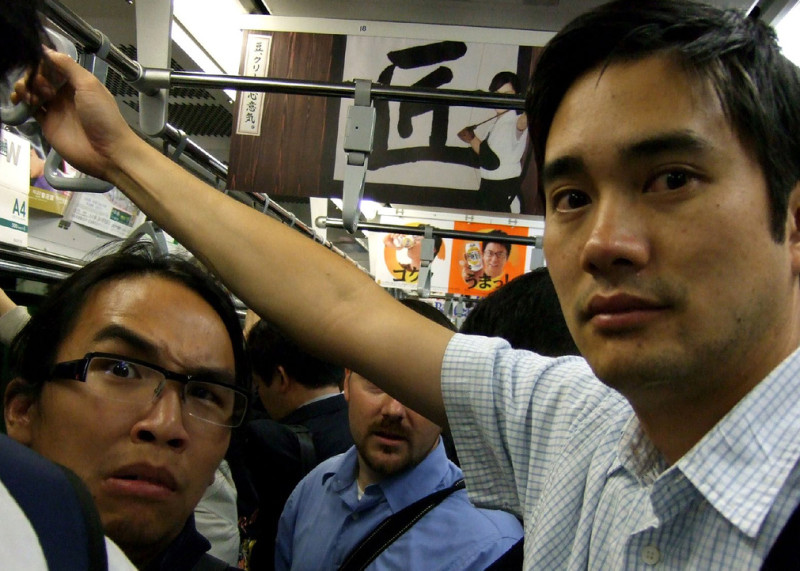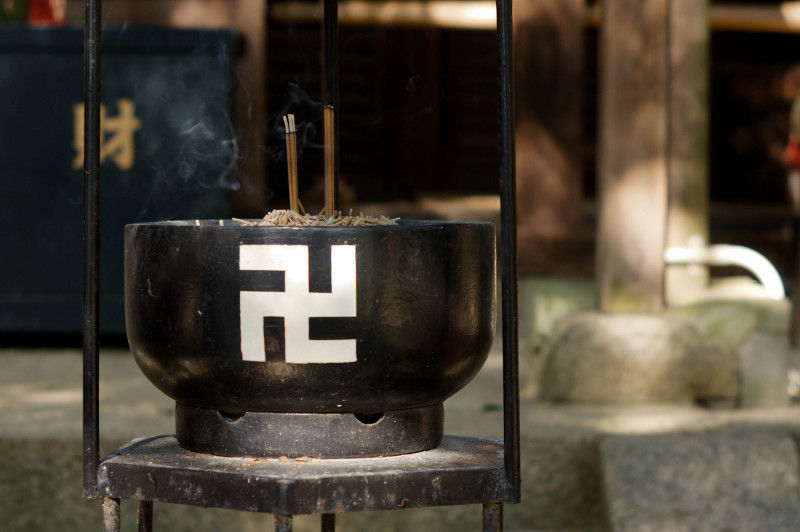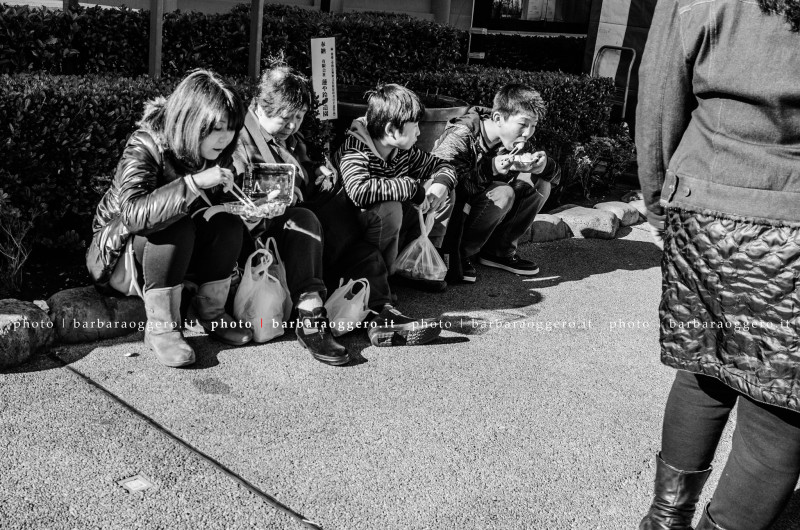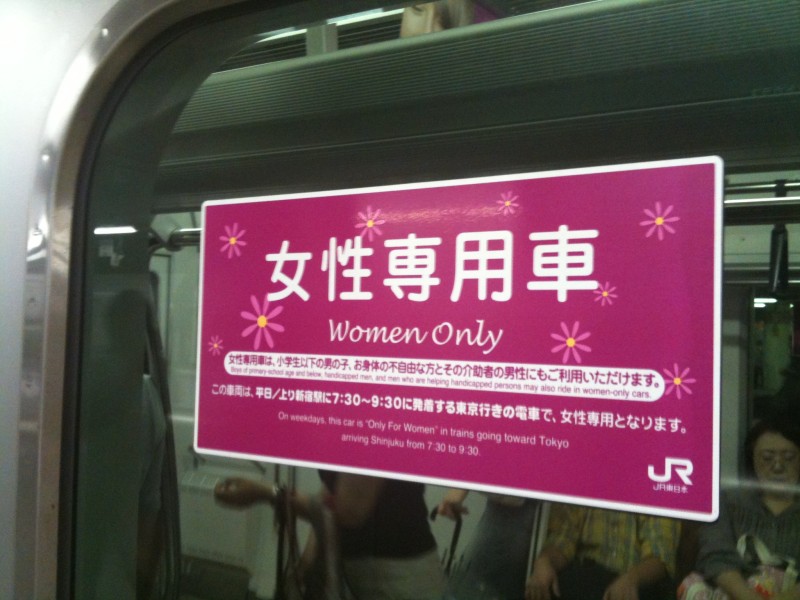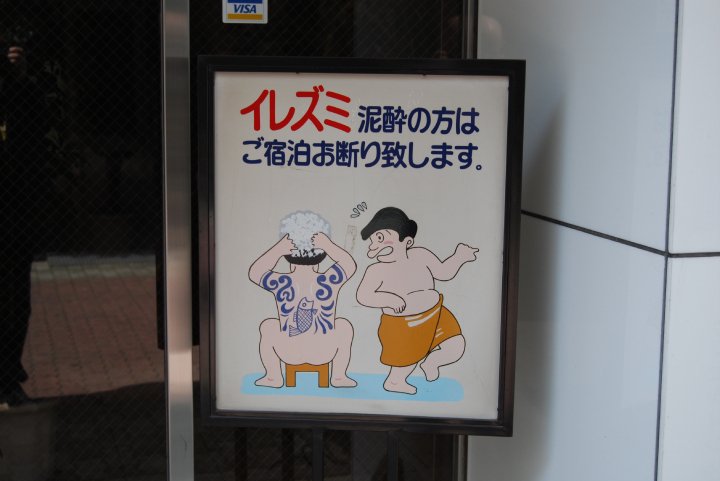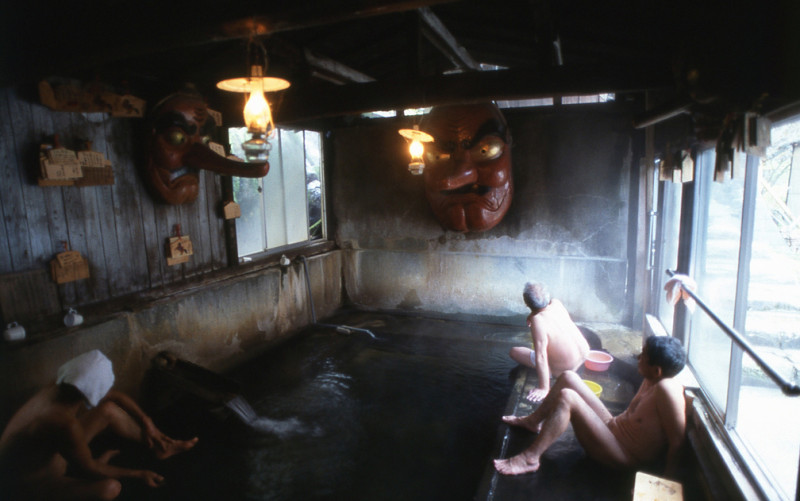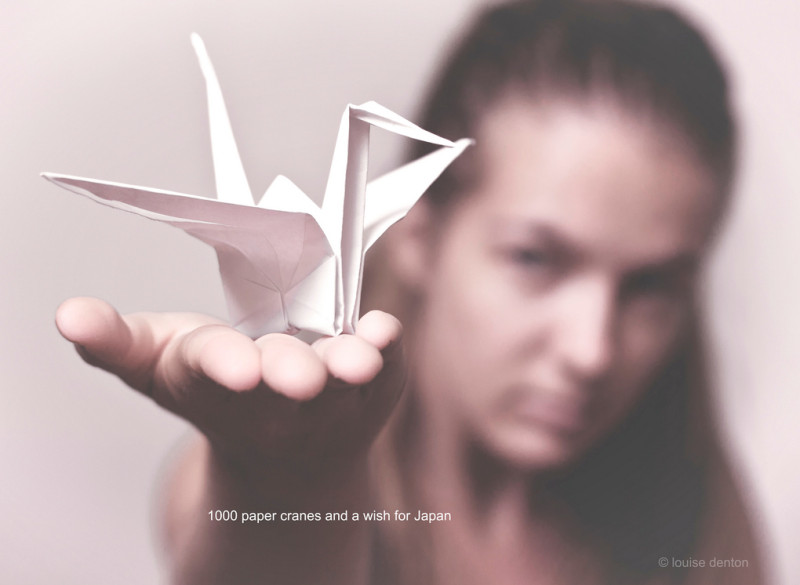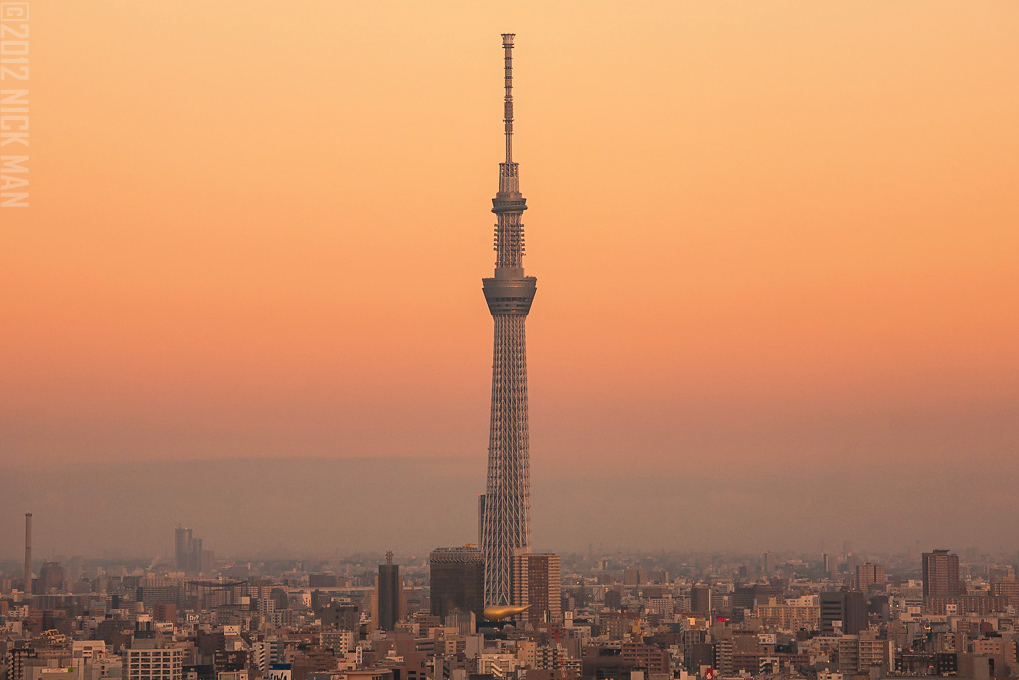Getting ready to visit Japan is not just about packing and having all that you need with you, it is also getting yourself prepared mentally for a trip into a completely different environment which for some might look at first like a visit on another planet. Japan is a wonderful place, no doubt about that, but by no means, it is a country which has evolved on a completely different cultural and social timeline which might look at first completely off sync with the rest of the planet. Foreigners who visit Japan for the first time might find themselves completely puzzled by the smallest things and quickly get disoriented and confused about how to get by their daily routine as things are seem at first completely foreign and exotic, but have no worry! Keep on reading this article and I will get you familiarized with the basic of how to do things, how to get around and how to get help in case you need it at anytime. Lets decrypt the Japanese way of life and social etiquettes so you can free your time from wondering about those things and jump right in to enjoy it all!
1. Can I Get Cash from ATM Machines?
Yes, Japan ATM system is very advanced are can recognize all major credit card issuers (Visa, MasterCard, Diners, American Express) as well as major banks cash cards and as long as you credit card or cash card is in good health and allows international cash withdraws from your account, you will be able to use it everywhere. ATM in Japan are located at the entrance to every bank and are available in most convenient shops and shopping center cash corner. Most of the ATM systems in Japan operate both in English and Japanese. Simply look for the “English” button on the main screen and follow the instructions.
2. Do I Need to Pay Consumption Tax?
You need to pay in Japan a consumption tax of 8% on all purchases in any shop you will visit, but if the shop you purchase is provide tax exemptions, you will see a big red sticker or sign saying “TAX FREE” in English at the store entrance. The minimum amount for eligibility for consumption tax exemption is ¥10,000 and up and there are 2 tax exemption methods which are used in Japan.
The first one is deducting 8% at the time of purchase and the second method is after purchasing and item and paying the full price, you can take the receipts to the tax exemption counter, complete the exemption procedure by showing your passport and filling out a form, and then you will be receive the taxed portion in cash back. Most of the major department stores in Japan are using the counter system and while shops usually use the first method.
3. What Kind of Voltage & Socket Used in Japan?
The voltage used everywhere in Japan is 100 volts, A.C. There are two kinds of frequencies in use. The first one is 50 Hertz which is used in eastern Japan and the second one is 60 Hertz, which is used in western Japan (including Nagoya, Kyoto and Osaka). Japan electric wall socket system use the 2-flat-pin plugs and there are no way to use round shaped plugs. The 100V system in Japan will work fine with 110V US electric appliances but will not work with any other voltage. It is best advised to come with 220V converter if you are coming from a country using higher voltage as well as have a handy wall plug extension to allow your country plug to fir the Japanese wall socket. You should also check your electric appliances before plugging it to the wall socket using a converter, in many appliances today, the converter is included and the plug will show 100V-220V capacity on it. In that case, you will only need a wall plug extension.
4. Is Smoking Allowed Everywhere?
As in many countries around the world, Japan has also recognize the danger in smoking cigarettes and in the past 10 years the local governments and businesses have been limiting to places where people are allowed to smoke in public. In general, it is considered quite rude to smoke in public no matter where you are, and since in Japan it is is a serious social offense to throw away any garbage in the street, if you do smoke in public, make sure not to throw away your cigarette anywhere else but in an portable ashtray you bring with you. Since smoking is in general restricted, if you do want to smoke, look for the special “Smoking Area” which are provided in hotels, train stations, and in public parks.
If you are a women, please be advised that smoking in public for women is considered in Japan as extremely impolite thing to do. Although women can smoke as men do, there is a social stigma about women who smoke in public, and if you want to avoid the slight strange looks you might get, try not to smoke in public, and surely not to walk in the street with a cigaret lit.
5. How Do I get Medical Assistance In Case I Need One?
Japan has a vast network of hospital and clinics you can use while visiting the country. If you are in any medical condition and need emergency service, you can use any phone to call free of charge to call for immediate medical care by calling the number 119. Your call will be routed to a special response which is set up to automatically log the geo-location of your call in case the caller is not proficient in Japanese, feel unwell or unable to respond coherently. If you use simple English and explain your situation and what you need, and the dispatcher will arrange an emergency team to get to you in a very short time. In case you do not need any emergency service but simply need to see a physician, you can walk in to any hospital or clinic and use their services. Please remember that since you do not have medical insurance, you will be charged fully for the service and you can keep the receipts to get reimbursed when you return back home.
6. What Should I Do In Case I Was Involved in a Violent Crime?
Japan in general is a very safe place. There are no major risk in walking anywhere at night time or been attacked in any way. The country has one of the lowest crime level in the world, but regardless, as in any other place in the world, things can get wrong and you might get robbed, mugged or simply get one of your belonging get stolen. In such case, use any phone to call 110 and get a police dispatcher to assist you. As in the medical care service, your geo-location will immediately be logged and you will be able to get a quick assistance and response team to get to your help. In case you want to speak with the police, simply walk in to any of the Police stations called “Koban” in Japan and are located everywhere, usually in street corners and are easily recognized by the red light which turns on above the station and in most cases will have a policemen standing at the front door and will be glad to assist you.
7. What Can I Do If I lost Something?
Japan is one of the best places in the world to loose something! Why is that? Because this is one of the only places in the world where it is a cultural “must do” for anywhere who notice a lost item to pick it up and hand it over to the next Police station. I have personally lost my wallet 2 times and in both cases I received my wallet back with nothing missing. I am not any special case, it is known in Japan that if you lost something, all you need to do is simply get to the nearest Police station and fill out a “Lost Item” form and leave your contact information. As long as you lost it somewhere where somebody will find it, you will get it back safely. The key to find what you loose is how well you can remember where you lost it. If you will know where approximately you lost your item, the Police system will find a way to get it back to you.
8. Why Everyone Seem to Wear Medical Masks?
Yes, it might looks strange for foreigners coming to Japan to see so many people walking with medical masks in the streets, but there is nothing strange in it when it comes to the Japanese social acceptance of mask wearing. The reason people wear medical or surgical masks in Japan has nothing to do with air pollution, it is actually a mix of many reason. Most people who wears a mask in Japan are using it to to protect others from catching cold. It is common in Japan that in case you catch cold, you need to wear a mask to protect others in trains, public places, or at work. In spring time, due to the pollen level in the air, many people will wear a mask to avoid pollen reaction. There are also less obvious reasons which people wears mask due to, for example, many women who like to go make up free, will wear a mask and get away with the need to wear any makeup. Japanese women and girls might wear a mask just to feel more secure and for no other reason. lastly, since so many people wear a mask daily, it has become a sort of a fashion in Japan and there are many people who simply likes to wear it!
9. Why is Everyone Bowing to Each Other?
The first thing you might notice when coming to Japan, probably by the flight attendants and as you enter any of Japan airports, is that everyone bowing to you. As a foreigners, it might feel uncomfortable at first as well as provoke a strange reaction as to what are you suppose to do when someone bow to you. Well, its very easy to understand the bowing in Japan if you compare it to a SMILE. When you are traveling around the world, you will be greeted with a smile by anyone who serves you or any stranger that you might want to open a conversation with. In Japan, bowing is a way to show respect to each other, and just like the smile, it is a way to approach stranger and greet them. In Japan you might not get many smiles, as people are considering smile to be more personal, but you will be greeted everywhere with a bow. The bow rule also goes that as low the bow is, the more respect the person try to project to you. The best way is to always bow slightly with your head, and even add a smile to give an extra friendly touch. If you do want to say thank you, bow first, and then say thank you. Get used to the “bowing thing” in Japan, it is actually gets easier very quickly and you might take it back with you for the first few days after returning home!
10. How Come Everything is So Clean?
Yes, Japan is one of the most clean countries in the world and foreigners notice that very quickly from the first moment after landing in Japan. Of course, the main reason for it is the excellent cleaning services everywhere but the real reason behind it is that in Japan it is consider EXTREMELY RUDE to throw trash in public. It is almost un conceivable for a Japanese person to get rid of trash or something they are not in need any more and simply throw it away. Although it is quite a common thing in many places around the world, you will never have a chance to see Japanese people throwing trash in public. Everything in Japan is recycled, trash is organized like precious items, and people simply clean around constantly to make sure their environment looks neat and beautiful. Therefor, if you by accident throw something in the street, although you will not get arrested, and nobody will say anything, you will surely feel the negative energy around you with looks from strangers around you. In many cases somebody else might just pick up the trash you just threw away in attempt to make you understand this is not the right thing to do
11. Why Everyone Decline to Accept My Tip?
Thats right! Although around the world, I have never seen any place where tips are not a welcome gesture from a happy customer to a seller or service provider, in Japan, it is simply a taboo you should try to avoid. It is unacceptable for a Japanese person to accept a tip and is considered extremely rude to offer a tip. Think about it this way, – if you are anywhere else in the world, and a policeman will assist you or approach you for any reason, will you offer them a tip for their service or after their conversation with you? exactly, it will be considered rude and pretty much, bordering a felony of bribing an official. In Japan, offering a tip to anyone, anywhere, is simply unacceptable. Save your money, and save the uncomfortable feeling and weirdness you might get in case you try to give anyone a tip. If you drop a tip in a Taxi or somewhere, you will find a Japanese person run after you to return the tip back!
12. Is Public Transportation Available 24 Hours a Day?
Japan is one of the most convenient countries to use public transportation. If you are in a big city, you can relay on all the comfort of massive Subway and train systems, buses network and thousands of taxies you can use. The farther you get away from the main cities and into the rural areas of Japan, the public transportation will dwindle but the bus system and taxies are always there to use. Other than taxies which operates 24 hours a day, the bus system will usually end around 10-11pm while the subway and train system will end around midnight or as late as 1am. The public transportation is extremely busy on the “last trains” as all people in Japan are extremely aware of the public transportation operation hours and the very last train are usually packed with last moment travelers.
If you got to a train or bus station and realize it is too late, simply go back to the entrance as taxies are usually lined up and waiting for new customers at each of the stations right after closing hours!
13. Why Nobody Seem to Speak English?

Source: Tim
At first, it might seems that no one speaks English in Japan as if you try to approach anybody in English, you will probably see a confused and slightly shocked reaction, but don’t let that fool you. Most Japanese people can basically speak English and even if they don’t,they will find a way to communicate and speak with you, it is just the first moment of interaction that might cause a strange feeling. The reason for that is mainly because of the shy nature of Japanese people. It is not common for strangers to approach each other directly and even if they do, it is done in a very gentle social code. Therefor, if you do want to approach a Japanese person in English, it is best to try to first say “excuse me – I don’t speak Japanese but…” and try add a big smile and look apologizing for the “inconvenience” of your approach. The more you get better at that, the easier it will be to start speaking with a stranger and once a conversation will be sparked, English will suddenly not be a problem!
14. How to Use a Taxi in Japan?
Taxies are one of the most convenient ways to get around in the big cities and maybe the only way to get around in the more rural areas of Japan but most Japanese taxi derivers are not fluent in English and it might be a challenge to explain where you want to go. Well, first thing first, if you want to get a taxi, make sure the taxi you hail to has a red light in the front windshield. That means the taxi is available. Green light, means the taxi is now busy or somebody is using it at the moment. Once you go in, keep with you the Japanese address you need to go to in writing. Simply show the address to the Taxi driver and they will quickly get you there or if it is somewhere that they are not sure the route to, they will use the navigation system to direct the taxi to the requested location. Taxi ride in Japan usually cost ¥710 for the first 2km and then the meter will start working. When entering a taxi and leaving, you do not need to use the door, the taxi driver will open and close the door for you, so once the taxi ride is over, after you pay, just wait for a second and the taxi driver will open the door for you!
15. What Am I Doing Wrong on the Escalators?
Coming from abroad to Japan, you might never thought that escalators can be more simple then just stand and wait for it to carry you up or down somewhere, but in Japan, escalators have actually two lanes and you need to be aware of it so you will not cause a problem around you. In Japan, escalators are used for both standing or walking. Since the cities are extremely busy, the escalator space will usually have space for two people. The left side is for people who want to use the escalator by standing and waiting for it to take you, and the right side is for people who are in a hurry and want to walk the escalator up or down. Therefor, never stand on the right side, and if you are using the elevator in groups, stand one after the other on the left side and not block the right side walking lane. This might sound silly at first, but if you do stand on the right side and look backward, you might find a looooong line of people waiting patiently for you to realize they are in a hurry and need to walk the escalator fast.
16. Can I Get Free Internet Connection in Japan?
Yes, Japan is now almost fully covered by free wireless Internet connection hotspot system. A hotspot is a physical location that offers Internet access over a wireless local area network through the use of a router connected to a link to an Internet service provider. Japan hotspots system is typically use Wi-Fi technology although in some places, there are Bluetooth technology base hotspots. When visiting Japan, you will encounter these hotspot networks at international airports, major railway stations, coffeeshops, fast food and convenience store chains and almost any major tourist attraction.
There are 3 optional hotspot systems to choose from and you can get the full info in the following links:
Information
Wi2 Travel Japan Wi-Fi
- Website: http://wi2.co.jp/tjw/welcome/english.html
- App download link (iOS): https://itunes.apple.com/us/app/travel-japan-wi-fi-guide-wifi/id935204367?mt=8
- App Download Link (Android): https://play.google.com/store/apps/details?id=jp.ne.wi2.tjwifi
NTT Japan Connected-free Wi-Fi
- Website: http://www.ntt-bp.net/jcfw/en.html
- App download link (iOS): https://itunes.apple.com/app/japan-connected-free-wi-fi/id810838196?mt=8
- App Download Link (Android): https://play.google.com/store/apps/details?id=com.nttbp.jfw
SoftBank Free Wi-Fi Passport
- SSID: .FREE_Wi-Fi_PASSPORT
- Website: http://www.softbank.jp/en/mobile/special/freewifi/en/
- Instruction Brochure (English): http://cdn.softbank.jp/en/mobile/set/common/pdf/special/freewifi/brochure_FREE_Wi-Fi_PASSPORT.pdf
17. When are Japan National Holidays?
It might seem as if Japan is on a constant holiday of some sort, and indeed there are lots of holidays which are part of the Japanese culture. Add to that the fact that Japan also celebrate a lot of foreign holidays like Halloween, Valentine’s Day, or Christmas, and it adds up for quite a long list of holidays to enjoy in. Below is a list of the official National Holidays and the day of the month that they are taking place at.
- January 1st New Year’s Holiday
- The 2nd Monday of January Coming-of-Age Day
- February 11th National Foundation Day
- March 20th or March 21st* Vernal Equinox Day
- April 29th Showa Day
- May 3rd Constitution Memorial Day
- May 4th Greenery Day
- May 5th Children’s Day
- The 3rd Monday of July Maritime Day
- The 3rd Monday of September Respect for the Aged Day
- September 22nd or September 23rd* Autumnal Equinox Day
- The 2nd Monday of October Health and Sports Day
- November 3rd Culture Day
- November 23rd Labor Thanksgiving Day
- December 23rd The Emperor’s
18. When Do I Need to Take My Shoes off?
You probably heard about it before coming to Japan, and that is correct. In Japan, people take their shoes off in every possible situation that it might accuse. It almost feels as if Japanese don’t like to wear shoes! Just look at a Japanese person step into a long train ride, or an airplane and immediately they will take off their shoes! But beyond comfort, shoes in Japan are considered an item you wear outside the house, very similar to umbrella or a raincoat. Once you get back home, there is no need for them any more and surely no reason to have shoes carry dirt from the street into the house. The same goes for almost any other place where you will come from the outside and spend time inside such as traditional restaurants, clinics, or hot springs. In those places, you will usually find a shoes storage boxes and once you store your shoes, you will find slippers to use inside the place!
19. Do I Need to Wash My Hands Before Entering a Shrine or Temple?
Yes, and not just the hands, you need to wash both hands and lips, and rinse your mouth. The reason for that is that both Shinto and Buddhism consider the inner temple or shrine area as pure and for visitors to come in, they need to use water to get rid of the impurity and allow the visitors to go in clear of it. The way to wash your impurity away is by using the water basin which is located at every entrance to a shrine or temple. First was your hands, then pore some water into your palm and wash your lips. After you completed the ritual, pore the rest of the water into the drainage pool at the bottom of the basin (do not return the water into the water basin itself) and you are done! You are now clear of any impurity and can all in showing your respect to the place and the other worshipers around you.
20. What Not to Do with Chopsticks!
When dining in Japan in a restaurant or with other Japanese friends, you might find it helpful to remember some basic dining etiquette which you should never cross. Although nobody will directly tell you anything about it if you cross those lines, you might cause some uncomfortable feeling around you. There are two things you should remember when using chopsticks in public. The first rule is simple and not a big deal if you cross it. In case you eat something which is very large in size and you usually will cut it with knife and a fork, when using chopsticks, If a piece of food is too large to eat in one bite, don’t cut it with your chopsticks. Simply bring the whole piece to your mouth and take a bite, returning the remainder of the food to your plate. Now, the second rule of things to avoid, you should remember at all times! When using chopsticks, never ever use the chopsticks to pass food to a different person chopsticks. You can pass the food to their plate but never pass it to the other person chopsticks. The reason for that is that in Buddhism, when a person die and his body in cremated, it is traditionally up to the core family members of the deceased to sift through the ashes and separate what remains of the charred bones from the rest of the matter by passing them from one pair of chopsticks to another. Doing the same gesture while eating, can cause some serious stir, so remember that at all times!
21. Why do Everyone Pointing at Their Nose?
In Japan, when you look at people having a conversation, you will probably notice that Japanese people do not use their hands very much, or as much as you see around the world. Hand gestures are very strict and are used to emphasize something strongly but are used very little. One of the most common hand gestures are pointing at one’s own nose. In Japanese, it means “ME”. Around the world and in western cultures, people point at the chest or in general direction of the heart when referring to themselves, but in Japan, it is a gesture toward the nose, without actually touching the nose. You can try it yourself in a conversation, it is very common way to express yourself and Japanese will feel very amused if you use this gesture as it is known in Japan that this gesture is a very Japanese style!
22. When is the Cherry Blossom Season Exactly?
In Japan, the Cherry Blossom which signal the coming of Spring is a date which is calculated every year by the Japanese meteorological agency for each of the Japanese different areas. Japan is a very large country bordering Russia in the north and Taiwan in the south, therefor, the weather changes according to the different areas. In general, the main Cherry Blossom season is happening at the end of March and beginning of April, but considering the very far north and south areas, the season is spread from mid March to the end of April. To see the exact dates of the Cherry Blossom in 2016, please use the following link:
http://www.jnto.go.jp/sakura/eng/index.php
23. Oh My God! The Earth is Shaking!
If you come to Japan, get ready for one of the most common natural forces Japanese people are experiencing almost weekly but might considered quite scary in other countries. Yes, we are talking about Earthquakes! The Japanese islands are sitting right on the edge of massive tectonic plates which are constantly shifting and moving. In recent years, Japan experienced a massive 9.1 magnitude earthquake which caused an extraordinary Tsunami wave to hit Japan and cause extensive damage and loss of life. Although such earthquake can happen any time in Japan, they are very rare. Yet, smaller ear quakes measuring 3 to 5 are very common and are constantly happening. There is no reason to worry though, Japan is built for such jolts and in most cases there will be no damage or any danger but just in case you feel one, be aware that you need to take cover under a table or some hard surface, just in case something will fall and avoid such accident.
24. Why Do Everyone Stare at me?
Although there are over 20 million tourists coming into Japan yearly, there is no way around it, Japanese people are still fascinated of the different look foreigners acquire and how different it is from the common Japanese way of looking. In specific, Japanese are quite short, and although 1.80cm tall or higher, might just be considered “slightly tall” around the world, in Japan, it is simply GIANT SIZE. Add to that that all Japanese people have black hair and black eyes, and you can start to understand why they stare at foreigners with blond or red hair, light color eyes, or very dark skin. Get used to it, especially if you are a women. Japanese people will stare at you, not in your face, but will surely stare at you and there is no way to avoid it. There is nothing negative about it through, it is a stare of wonder, so enjoy it rather then worry about it!
25. Why Do I See Swastika Symbols on Old Buildings?
Swastika is associated with Nazi Germany in World War II and everyone around the world is pretty much eradicated any sign or mark from that era. Swastika are considered a racist symbol and associated with racist and hate groups around the world, but in Japan, the Swastika is a very old symbol, and associated with religion and buddhism. In Japan, the swastika is called “manji” and when you type out the word on your Japanese computer, chances are the swastika symbol will come up. The manji doesn’t have the kind of stigma in Japan as it does in the West, and is used pretty frequently in Buddhist tradition and as part of temple decorations.If you look at any city in Japan on Google Maps – especially older cities like Kyoto or Nara – you’ll see lots of manji markings where Buddhist temples are located.
26. Don’t Walk & Eat!
People are very busy in Japan largest cities and are always in a hurry, but no matter how much in a hurry they are, you will almost never see a Japanese person walk and eat. It is simply considered quite rude to walk around or eat in public spaces. Although it might look like a good idea to grab some fast food and go see a temple while eating it, don’t even think about doing it in Japan — it is simply unacceptable and add to that the trash you might need to throw away after you eat something, which makes walking and eating a very uncomfortable experience. If you are hungry, eat where you buy your food, or if you carry food with you, sit somewhere close to a trash bin area and enjoy your food and then get rid of the trash conveniently.
27. Is There Women Only Trains?
Unfortunately in Japan, there is a major issue with women getting roped on the very busy train, especially at rush hour when people are so cramped into one another inside the trains. The problem became so severe that the government issued a special law providing women special train cars to ride in rush hours on most of the subway and train lines. If you want to ride the women only train, look for the pink cars, this is the color they are usually painted, or look for the mark on the floor saying “Women Only”. The women car is used all day long and men usually avoid them even not in rush hours, so if you feel like you need your own privacy or simply do not want to cramp in with strangers, use one of those train cars.
28. Can I Visit a Hot Bath or hot spring If I have Tattoos?
Well, in general, tattoos in Japan are associated with the Yakuza, the Japanese criminal groups, which are the only groups in Japan which “traditionally” tattoo their bodies with gang related symbols and pictures. Although in modern Japan, tattoos have become more common it is still a powerful taboo and unless it is a gang specialized hot spring or bath, tattoos are not welcome. The main reason for that is that in regular hot bath and hot springs, there are many children, and parents do not wish their kids to see tattooed people walking around. Yet, in recent years, and as tourism grow in Japan, hot bath and hot spring realize that tattoos are part of the western world and have no relation to crime but an expression of individuality and if you are a foreigner and have tattoos, you will not be rejected from a hot bath due to your tattoos.
29. What Do I Do with the White Little Towel in a Hot Bath?
When visiting a hot bath or hot spring in Japan, you will find yourself leaving all your cloths at the locker room and left with just a tiny white towel to enter the bath itself. It might look like a little towel but it has many uses and you might want to know what to do with it before actually enjoying those public places. The main use of the town is to cover your private parts. it looks small but it is enough to cover the most intimate parts of the body and it is not meant to be tied. it is simply been carried in hand and covering yourself as you walk around. When you are using the showers, the towel is used for washing and rubbing. And lastly, when you are sitting in the hot bath, the towel is great to use on your forehead or top of the head to cool down!
30. Don’t Forget to Leave Gifts!
I could write a whole article about gift giving in Japan as it is part of the Japanese culture and is rooted deep in the country culture and past, but in general you should know that gift giving in Japan is not just for birthdays. Gift giving is a way to say “Thank you” to someone who you think deserve it. Gift does not need to be expensive, it is more about the act of gift giving then the monetary value of the gift itself which counts. Of course, if you do want to say a much deeper thank you, a more expensive gift will express that, but overall, you can simply keep a few ready to use small gifts which you can give to a person you met and want to say thank you to, or to someone who helped you in any way, and this gesture will show your gratitude toward that person. Also, you might find it is fun to give gifts around!
Have a good trip and travel!

